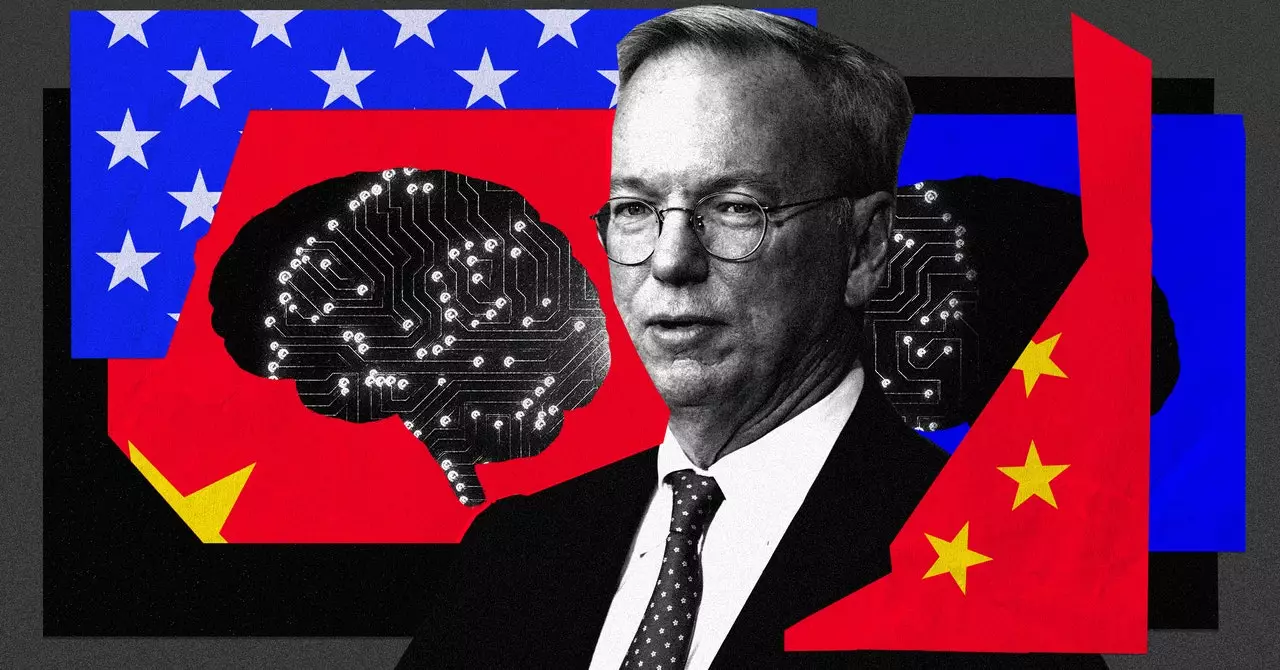In recent years, the US government’s National Security Commission on Artificial Intelligence (NSCAI) has raised concerns about China using artificial intelligence to further an autocratic agenda. Interestingly enough, the chairman of the NSCAI, former Google CEO Eric Schmidt, has been linked to potential personal connections within China’s AI industry. Newly disclosed emails show that Schmidt’s philanthropic venture, Schmidt Futures, sought assistance from NSCAI employees to identify potential engagements in Beijing regarding AI. This raises questions about the extent of Schmidt’s involvement with China’s AI initiatives and how it aligns with the NSCAI’s warnings about China’s use of AI.
The relationship between Schmidt, China, and the NSCAI reflects a complicated interplay between business interests and geopolitical concerns. While the NSCAI warns about China’s advancements in AI, Schmidt’s personal connections and investments suggest a more nuanced relationship with China. Flight records show Schmidt’s travels to China, and tax filings reveal significant investments in a fund that supports Chinese tech and AI companies, including those focused on surveillance technology. This raises questions about the potential conflicts of interest and the balance between national security and business interests in the realm of AI development.
The dynamics between the US and China in the realm of AI highlight a paradoxical relationship of rivalry and interdependence. While both countries compete for technological dominance and national security interests, they also rely on each other for innovation and investment. Schmidt’s interactions with Chinese entrepreneurs and investors, as well as his foundation’s investments in Chinese tech firms, underscore this complex relationship. The shared interests in AI development and investment create a delicate balance between competition and cooperation that defines the ongoing relationship between the two superpowers.
As concerns about China’s use of AI grow, the role of influential figures like Eric Schmidt in shaping the landscape of AI development becomes increasingly scrutinized. The revelations about Schmidt’s connections to China’s AI industry raise questions about transparency and accountability in the tech sector. It is crucial for individuals and organizations involved in AI research and investment to be transparent about their relationships and activities, especially when they intersect with geopolitical concerns and national security issues. The need for increased transparency and accountability in AI development is essential to ensure that ethical standards and values are upheld in the pursuit of technological advancement.
The complex relationship between Eric Schmidt, China, and artificial intelligence highlights the intersecting interests of business, geopolitics, and innovation in the AI landscape. As advancements in AI technologies continue to shape the future of global competition and collaboration, it is essential to navigate these complexities with transparency, accountability, and a commitment to ethical standards. The evolving dynamics between the US and China in the realm of AI underscore the importance of fostering responsible AI development and investment practices that uphold fundamental values of privacy, security, and individual liberty.


Leave a Reply